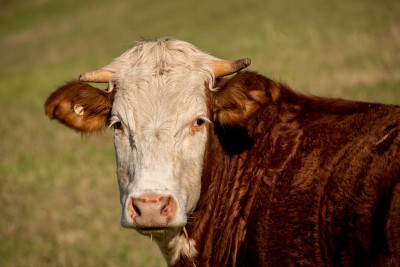When it the Right Time to Castrate Bulls by Jeff Robe

When is the right time to castrate bulls?
Jeff Robe, Oklahoma Quality Beef Network Coordinator
The practice of castrating animals goes back to ancient times. Egyptian farmers found castrating bovine bulls made the animal much easier to handle. It's doubtful the Egyptians were concerned about the value-added components of their animals. But today, adding value to market cattle is the name of the game and castration is a key component to any preconditioning program that can greatly influence market price premiums or discounts, especially in older bull calves.
Castrating bull calves has become common practice in U.S. beef herds. In 2017, the USDA-APHIS NAHMS Beef Cow Calf study indicated that 62% of commercial cow-calf herds used castration methods in their management practices. Castration has provided economic benefits to both the cow-calf producer and feedlot operators through increased market prices and meat quality. Castration also decreases unwanted pregnancy and increases the safety of workers and other animals.
There is a perceived notion that intact bulls have an advantage in body weight gains during the preweaning period and post greater weaning weights than calves castrated at or near birth. However, numerous studies have shown the weaning weights are similar for bulls and steers (approx. 600 lbs.). Advantages in calf weight gain due to testosterone production are presumably realized at a time following average weaning dates closer to puberty.
The timing of castration can influence weight gain and stress management. Studies examining how timing of castration effects average daily gains (ADG) in cattle castrated either in early life (birth to 2 mo.) or those castrated at weaning or post-weaning (6-10 mo.) demonstrated higher ADG during the post-weaning period in the early castrated calves (approx. 0.30 lbs/day greater) than those castrated at or after. The period calves experience weight loss post-castration increases with age as does risk of disease susceptibility. The stress experienced is also related to the time of castration as the level of discomfort and trauma increases with the size of testicles. Calves castrated at 5 ½ months of age or later experienced a greater duration of stress than those castrated at birth or at branding.
Bull calves entering the stocker or feedlot segments of the industry have numerous health and performance factors associated with late life castration such as increased risk or morbidity and mortality, sick treatments and decreased ADG. Therefore, price discounts for bull calves being sold at market can be substantial when compared to steers marketed in the same weight class. Lighter weight bulls (300-400 lbs.) are viewed as less risky, and discounts are generally minimal if any. As the weight of a bull increases, so does the risk. Discounts can average $6-12/cwt or $30-60 per head.
A herd management practice that dates to ancient times and still used today has clearly proven beneficial. Utilizing the practice and with a timing that makes sense may be the difference between dollars made or dollars lost.
Upcoming Events
IPM Strategies to Protect Corn and Soybean Seed in NY
July 30, 2025
Hamburg , NY
SWNYDLFC and Cornell IPM are hosting a grower meeting to discuss integrated pest management strategies for protecting corn and soybean seed in New York.
FAMACHA Training for Sheep and Goat producers in Woodhull NY
August 13, 2025 : FAMACHA Training in Woodhull
Woodhull, NY
Join us for a discussion and hands-on training for internal parasite integrated pest management in sheep and goats. Certification is available to all students participating in the workshop.
Cover Crop & Soil Health Field Day
August 13, 2025
Andover, NY
Please join us for a morning of hands-on learning with expert insights from local farmers, industry representatives, and extension. We will have some demonstration plots in action along with discussion about how cover crops influence soils and demonstration showing impacts on farm resiliency.
Announcements
No announcements at this time.





